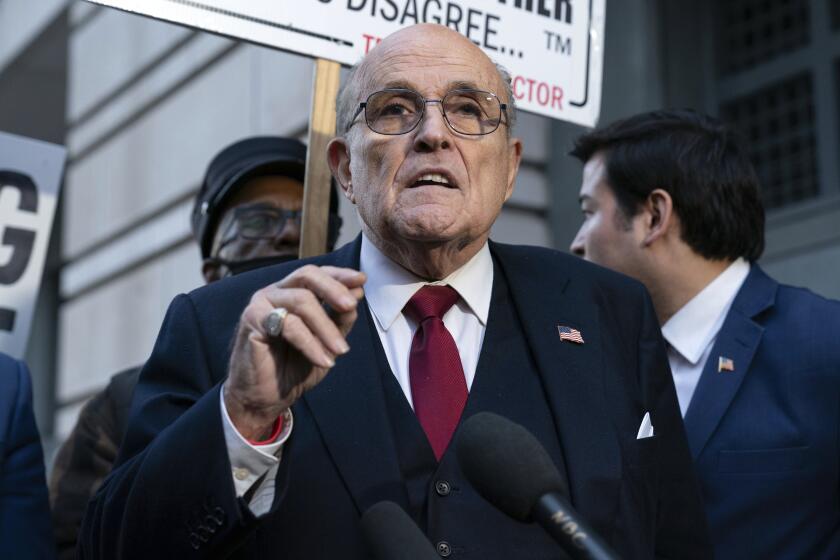A Fiscal Realism Is Stirring
In the early 1990s, Republican and Democratic moderates teamed up to eliminate the trillions of dollars in debt accumulated through precipitous tax cuts and recession. Today, the deficit is accumulating faster and has the potential to do more damage. Luckily, a somnolent Congress is starting to wake up.
Of this year’s projected $521-billion deficit, the revenue lost to tax cuts accounts for $272 billion. Half a trillion dollars can’t be saved by pinching the “No Child Left Behind” funding or even by cutting the $10 billion allocated next year for the worthless missile defense system.
The elephant in the room is those tax cuts. Rolling back just the top-bracket cuts would save $180 billion. A thorough crackdown on corporate tax evasion by a beefed-up IRS could, according to a recent General Accounting Office study, raise up to $40 billion a year -- enough to finance the annual budget of the Department of Homeland Security.
While some in his own party show signs of deficit panic, Bush is calling for his tax cuts to be made permanent. Their temporariness was always a ruse to make them look smaller than they were.
Far from cutting the annual deficit from $521 million to $237 million by 2009, as Bush claims, his budget plan would add at least $2 trillion to the deficit over the next 10 years.
Bush’s plan to restrain discretionary spending to a 0.5% increase includes items that would simply cause more losses, as in a proposal to reduce the IRS budget for modernization from $388 million to $285 million. The total saving from all cuts is only $4.9 billion. Contrast that with the $50 billion that Bush plans to ask for in supplemental aid to Afghanistan and Iraq later this year, an item not even in the budget.
Rep. Jim Nussle (R-Iowa), chairman of the House Budget Committee, is looking critically at waste in defense and homeland security. Other congressional Republicans have focused on the Medicare prescription drug benefit, whose expected cost suddenly soared from $400 billion to $540 billion. They could start by lifting the ban on direct price negotiation by Medicare with drug companies.
Senate Majority Leader Bill Frist (R-Tenn.) is also telling lawmakers that the $31-billion national energy bill, rife with industry subsidies, needs to be drastically cut, by as much as $12 billion. To help pay for a lavish highway bill, Rep. Don Young (R-Alaska) proposes a gasoline-tax hike.
There’s plenty for Democrats and Republicans to compromise on. Those who exaggerate how much can be saved from program cuts will have to listen to those who would slow tax cuts. Unless Congress focuses on deficits now, Social Security and Medicare will end up on the chopping block as the baby boom generation retires.
Responsible lawmakers are starting to push back, with an eye on their constituents. Middle-class taxpayers see how little the tax cuts brought them and how few of the promised new jobs materialized. Reality is taking hold.
More to Read
Get the L.A. Times Politics newsletter
Deeply reported insights into legislation, politics and policy from Sacramento, Washington and beyond. In your inbox three times per week.
You may occasionally receive promotional content from the Los Angeles Times.






